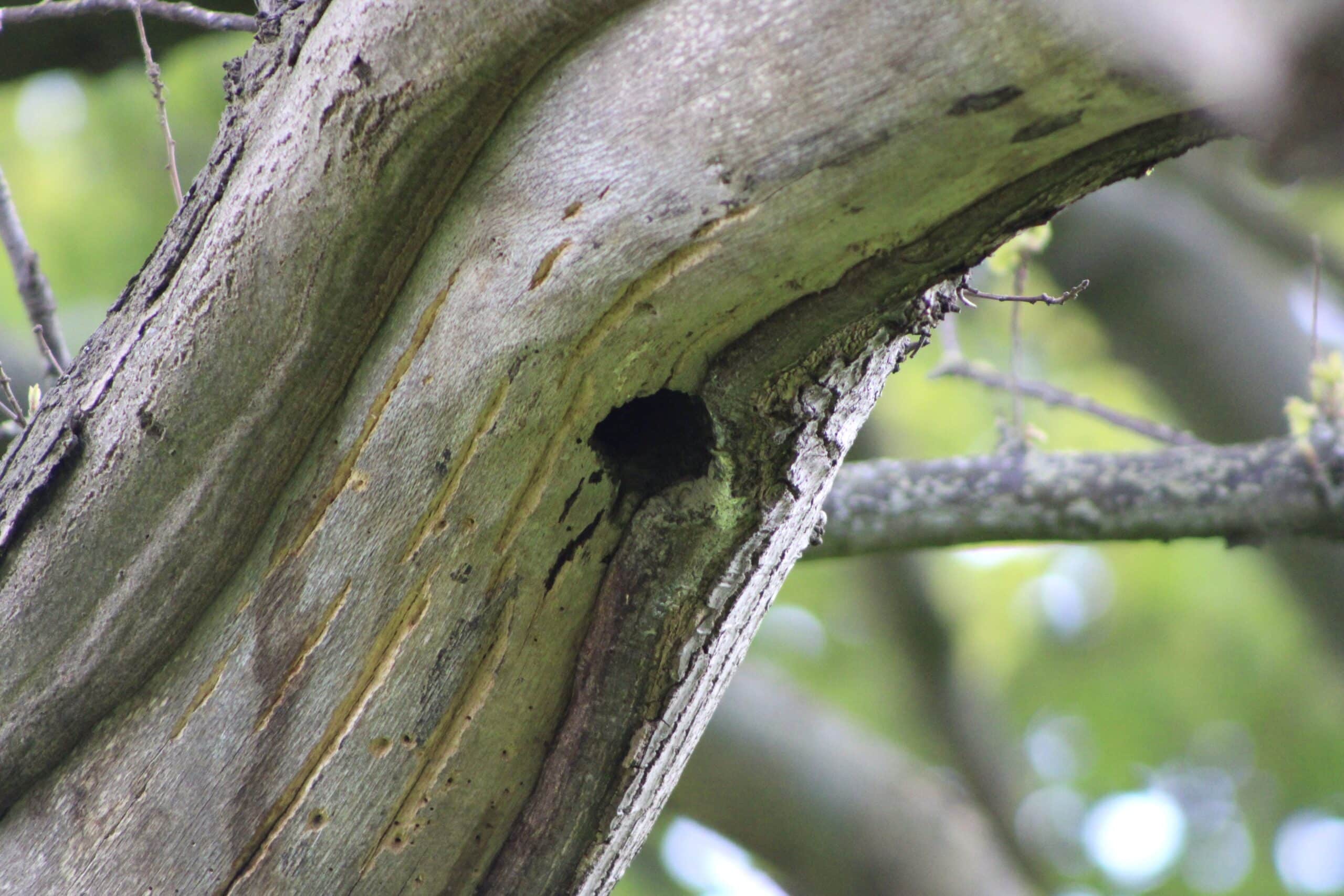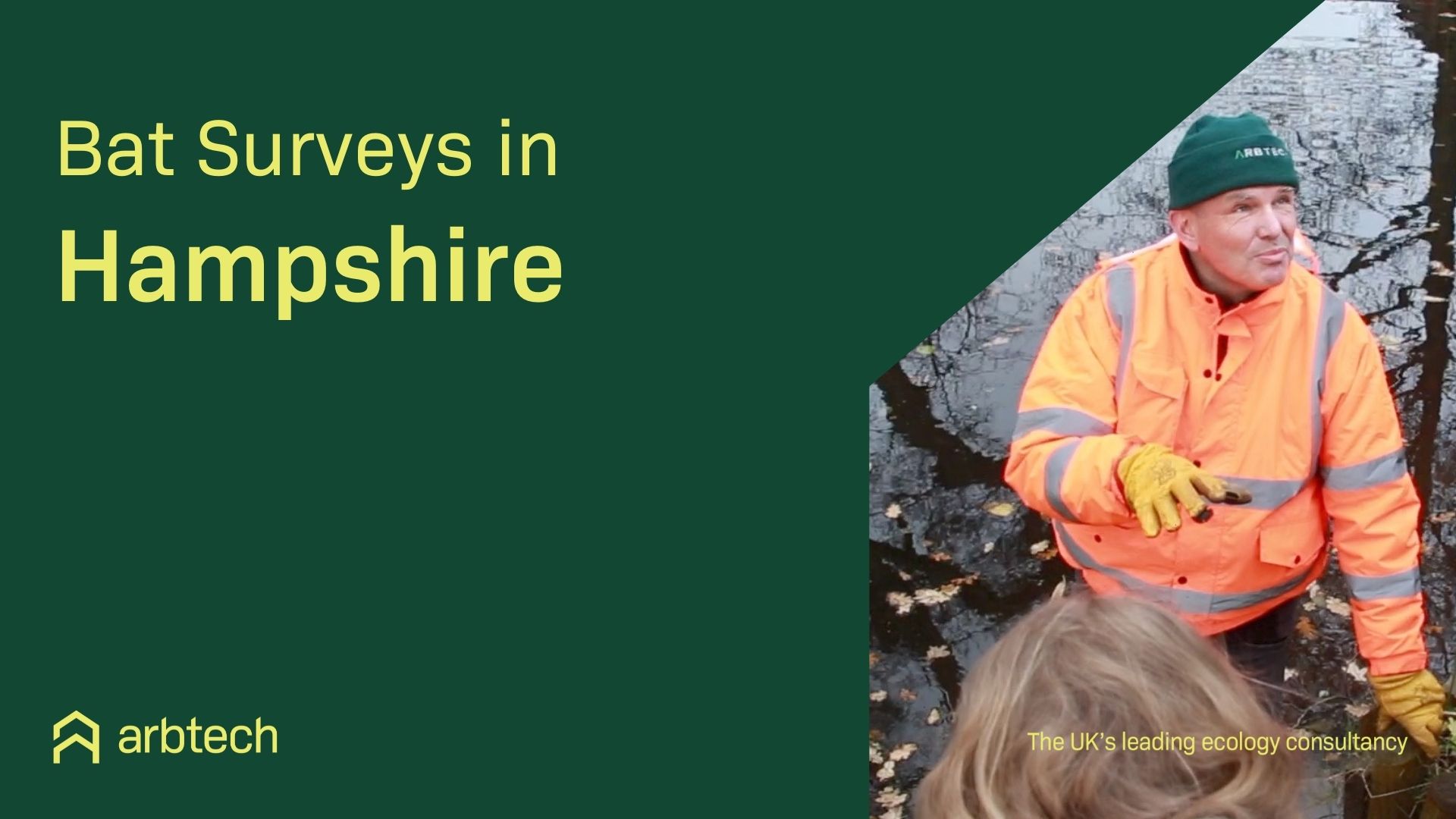Hampshire’s Suitable Habitat for Bats
Located in the South East of England, Hampshire is the biggest county in the district and home to two national parks: the South Downs National Park and the New Forest National Park. The New Forest possesses some of South East England’s most picturesque countryside, boasting three Areas of Outstanding Natural Beauty (AONB) and a number of designated wildlife sites, including Holly Hill Woodland Park, Crabtree Plantation and Winchester City Mill to name a few.
With all of this nature and open space, this would undoubtedly mean that it is also home to an abundance of species, including the bat. The county of Hampshire is privileged enough to have sightings of all the UK’s 17 breeding species of bat. This includes the more common species of bat, such as the brown long-eared bat and pipistrelles, but also the much rarer breeds such as the Bechstein’s bat and the barbastelle bat.
An Abundance of Natural Bat Habitat
The New Forest itself is a refuge for roosting bats, with 16 out of the 17 UK bat species residing there. In the New Forest, they research the bat species native to the area. They do this by observing the frequency of the echolocation sounds using automated bat detectors. As each bat produces a different frequency, the recorded sound allows the species of bat to be identified.
The Hampshire Bat Group research and assess bats and their distribution and has been conducting bat assessments since 2006. The group continue to collect their data and records annually throughout the county, and there are still many areas left undiscovered that need investigating to find out more about the populations, both in the towns and villages and the countryside of Hampshire.
Bats feed on a variety of insects including mosquitos, gnats, moths and butterflies. During the summer months, bats require a dry and warm bat roost to raise their offspring in – something the New Forest can provide in the form of tree rot holes in the woodland. This is why – where attainable – the New Forest try to retain standing dead trees, as they are ideal roosting habitats for bats and their prey. Bats are the only species of mammal that can fly, meaning they don’t stay in one location and can move bat roosts multiple times in one year.
Consequently, bats could decide to spread their wings and come to roost in trees, outhouses and even in roof cavities in your home. With bats being a European protected species, this means that by law it is a criminal offence to interfere or disturb bats or disrupt or destroy bat roosts, as detailed within the Wildlife and Countryside Act 1981 and the Conservation of Habitats and Species Regulations 2019.
If you are in need of full planning permission from a local authority or intend on removing an old tree in your garden, for instance, you would have to get in touch with an ecologist for an internal and external inspection. Likewise, the presence of other protected species such as great crested newts, for example, would call for other protected species surveys such as bird surveys or great crested newt surveys.

The Bat Survey Process for Hampshire Planning Applications
For most planning applications, local planning authorities including Hampshire County Council require a proposal of an ecological statement or assessment. This differs in the kind and extent depending on the potential for impact, destruction or interference and also the size of the development. Ecological surveys, however, are available to private, residential and commercial developers.
In accordance with UK legislation, all bat survey work should be carried out by a qualified ecologist, who will come out and conduct an initial assessment, known as a Preliminary Roost Assessment (PRA), phase 1 bat survey or scoping bat survey, on the properties and trees within your development site. A Preliminary Roost Assessment (PRA) is often the result of a prior Preliminary Ecological Appraisal (PEA) or simply as a precaution based on likely roosting potential on or in close proximity to the site.
It consists of an ecologist conducting an internal and external inspection of the site for signs of bats. Indications of a bat presence on a site generally include bat droppings – similar to mouse droppings, except bat droppings crumble into dust under pressure. Other signs to look out for during initial survey work within fully protected species surveys are deep cavities in trees and wall voids that could act as an appropriate bat roost for them to crawl into for shelter. According to traditional bat activity and our own good practice guidelines, these areas are desirable locations for roosting bats as they are warm and dark.
If there is evidence of bats, any of the indicators listed above, or if the site has high potential as a suitable habitat, a Bat Emergence and Re-Entry Survey (BERS) or phase 1 bat survey is generally required. Also known as Bat Emergence Surveys, Re-Entry Surveys or Bat Activity Surveys, this kind of low-cost bat survey is undertaken either at dusk or dawn and would include the use of bat detectors, infrared and thermal imaging cameras, DNA analysis and devices designed to distinguish echolocation bat calls, as well as general observation by an ecologist of the suspected habitat to detect bat activity and watch whether or not bats are flying in and out of the location. It is also a type of survey effort with seasonal constraints that can only be carried out at least two times during the active season between May and September.
After both of these bat surveys are carried out, your ecologist will deliver a bat report for yourself and the corresponding local planning authority to inform you of the next steps to carry out. At this point, it would be the right place for the ecologist to determine whether further surveys are required based on evidence of European protected species present on the site. As with phase 1 bat surveys, approaching the bat activity survey in this way will avoid delays in the works schedule of the project.
Hampshire Coverage of Ecological Appraisals
If you want to learn more about bat activity surveys in Hampshire, you could join the Hampshire Bat Group on Facebook, visit the website of regulators such as DEFRA, CIEEM or Natural England, or give Arbtech a call. We operate in Hampshire, Dorset, Sussex and beyond, providing development professionals with timely advice and mitigation reports for affordable prices to remove any bat survey objections to their application for full planning permission.
By locating ecological consultants at different points across the UK, we can guarantee ecologists close to you with knowledge of local ecology and nearby legally protected species. Using their expertise and insight, our ecological surveyors can then conduct any form of bat survey needed on your site, ranging from a Preliminary Roost Assessment (PRA) to a Bat Emergence and Re-Entry Survey (BERS), as well as any further survey work including protected species surveys for great crested newts and other European protected species present in the Hampshire area.
Plan a Bat Survey on Your Development Site
Following several years of earning relevant qualifications, developing an understanding of the corresponding good practice guidelines, and earning accreditations through collaboration with Natural England and the Bat Conservation Trust (BCT), all of our ecologists can undertake a bat survey and determine whether other surveys are required in the process of securing an application for planning permission from the local authority.
Additionally, if bat surveys on the site or property conclude that roosting bats need to be relocated or bat roosts need to be destroyed, our ecological consultants will be able to provide support on putting forward an application for a generally required European protected species licence. Without it, it will be illegal to disturb bats on the site and implement changes that will allow the planning project to continue.
For a free quote based on your site and project, take the first step and get in touch with us by filling out the online form below or simply calling us using the number at the top of this page. We can then work with you at an early stage in your planning project to gauge if bat surveys, bat activity surveys or further surveys are required to avoid habitat loss and get your planning application accepted.


